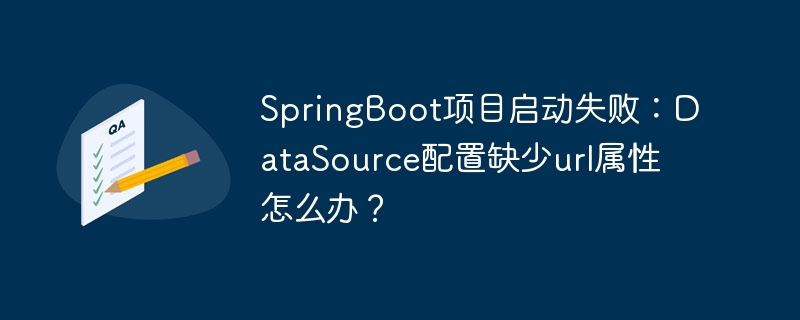
Go 编译错误:未定义的变量及作用域问题详解
本文针对 Go 语言中常见的“undefined variable”编译错误,特别是出现在 switch 语句中的情况进行深入分析。通过剖析变量作用域规则,结合示例代码,详细讲解了如何正确地声明和使用变量,避免此类错误,并提供了一种清晰的解决方案。掌握这些知识,能有效提升 Go 语言编程的效率和代码质量。
在 Go 语言编程中,遇到 “undefined variable” 错误是很常见的。尤其是在使用 switch 语句时,由于作用域的原因,更容易出现此类错误。本文将深入探讨这个问题,并提供解决方案。
问题分析
Go 语言具有严格的作用域规则。理解这些规则对于编写正确的代码至关重要。在 switch 语句中,每个 case 和 default 子句都构成一个隐式代码块。这意味着在这些子句中使用短变量声明 ( := ) 声明的变量,其作用域仅限于该子句内部。
以下面的代码片段为例:
package main import ( "fmt" "io" "os" ) const file = "readfile.txt" func lookup(String) (string, string, string) { artist := "default_artist" album := "default_album" year := "default_year" return artist, album, year } func enterdisk() (string, string, string) { var artist string var album string var year string fmt.Println("enter artist:") fmt.Scanf("%s", &artist) fmt.Println("enter album:") fmt.Scanf("%s", &album) fmt.Println("enter year:") fmt.Scanf("%s", &year) return artist, album, year } func main() { var s string fmt.Println("enter UPC or [manual] to enter information manually:") fmt.Scanf("%s", &s) var artist, album, year string // 声明变量 switch s { case "manualn": artist, album, year = enterdisk() default: artist, album, year = lookup(s) } f, _ := os.OpenFile(file, os.O_APPEND|os.O_RDWR, 0666) io.WriteString(f, (artist + ", "" + album + "" - " + year + "n")) f.Close() fmt.Println("wrote data to file") }
如果我们在 switch 语句的 case 和 default 子句中使用 artist, album, year := enterdisk() 和 artist, album, year := lookup(s) 这样的短变量声明,那么 artist, album, 和 year 的作用域将仅限于各自的 case 或 default 代码块内。 在 switch 语句外部,例如 io.WriteString 函数中,这些变量将无法访问,从而导致 “undefined variable” 错误。
解决方案
解决此问题的关键是在 switch 语句外部声明变量,然后在 case 和 default 子句中进行赋值。 这样,变量的作用域覆盖整个 main 函数,可以在 switch 语句之后访问。
修改后的代码如下:
package main import ( "fmt" "io" "os" ) const file = "readfile.txt" func lookup(string) (string, string, string) { artist := "default_artist" album := "default_album" year := "default_year" return artist, album, year } func enterdisk() (string, string, string) { var artist string var album string var year string fmt.Println("enter artist:") fmt.Scanf("%s", &artist) fmt.Println("enter album:") fmt.Scanf("%s", &album) fmt.Println("enter year:") fmt.Scanf("%s", &year) return artist, album, year } func main() { var s string fmt.Println("enter UPC or [manual] to enter information manually:") fmt.Scanf("%s", &s) var artist, album, year string // 声明变量 switch s { case "manualn": artist, album, year = enterdisk() // 赋值 default: artist, album, year = lookup(s) // 赋值 } f, _ := os.OpenFile(file, os.O_APPEND|os.O_RDWR, 0666) io.WriteString(f, (artist + ", "" + album + "" - " + year + "n")) f.Close() fmt.Println("wrote data to file") }
在 main 函数中,我们在 switch 语句之前使用 var artist, album, year string 声明了 artist, album, 和 year 变量。 然后,在 case 和 default 子句中,我们使用赋值操作符 = 来为这些变量赋值,而不是使用短变量声明 :=。 这样,artist, album, 和 year 变量的作用域扩展到整个 main 函数,并且可以在 switch 语句之后的 io.WriteString 函数中安全地访问它们。
注意事项
- 变量声明位置: 确保在第一次使用变量之前声明它。 在 switch 语句外部声明变量可以避免作用域问题。
- 短变量声明 vs. 赋值: 理解短变量声明 := 和赋值 = 的区别。 短变量声明会创建一个新的变量,而赋值只是修改现有变量的值。
- 代码可读性: 清晰的代码结构和注释可以帮助理解变量的作用域,并减少错误的发生。
总结
理解 Go 语言的作用域规则对于编写正确的代码至关重要。 当遇到 “undefined variable” 错误时,请仔细检查变量的声明位置和作用域。 通过在 switch 语句外部声明变量并在 case 和 default 子句中进行赋值,可以有效地避免此类错误。 遵循这些最佳实践,可以编写出更健壮、更易于维护的 Go 代码。



















